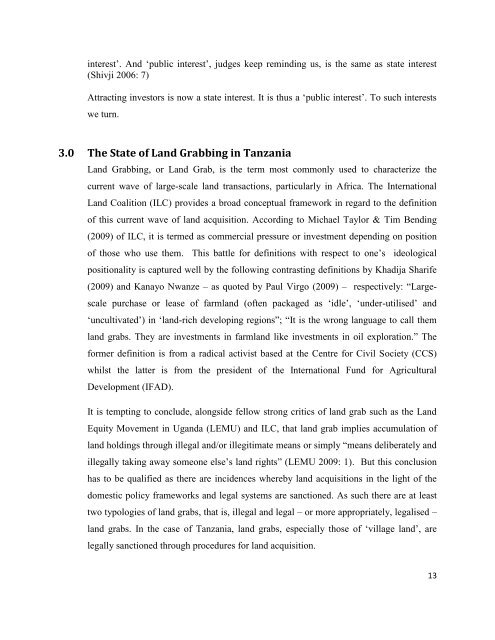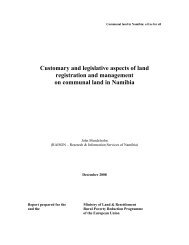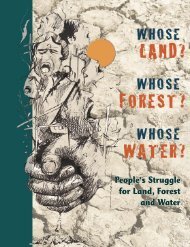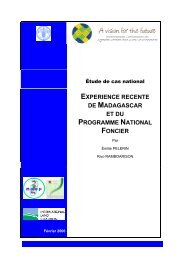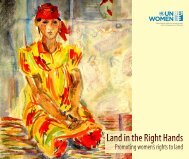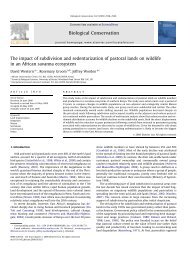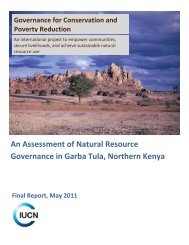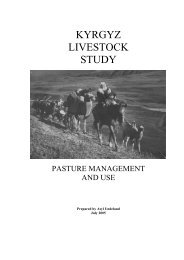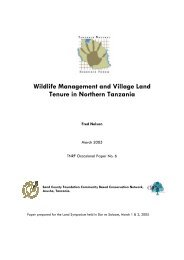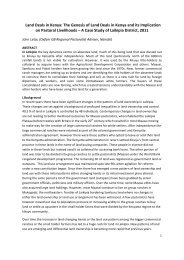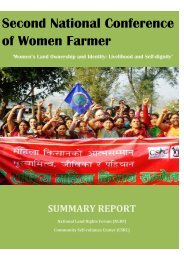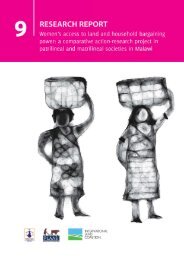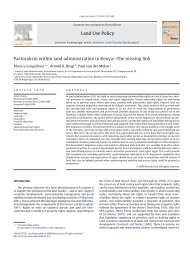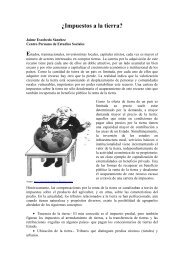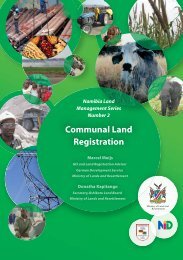accumulation by land dispossession and labor ... - Land Portal
accumulation by land dispossession and labor ... - Land Portal
accumulation by land dispossession and labor ... - Land Portal
You also want an ePaper? Increase the reach of your titles
YUMPU automatically turns print PDFs into web optimized ePapers that Google loves.
interest‘. And ‗public interest‘, judges keep reminding us, is the same as state interest<br />
(Shivji 2006: 7)<br />
Attracting investors is now a state interest. It is thus a ‗public interest‘. To such interests<br />
we turn.<br />
3.0 The State of L<strong>and</strong> Grabbing in Tanzania<br />
L<strong>and</strong> Grabbing, or L<strong>and</strong> Grab, is the term most commonly used to characterize the<br />
current wave of large-scale <strong>l<strong>and</strong></strong> transactions, particularly in Africa. The International<br />
L<strong>and</strong> Coalition (ILC) provides a broad conceptual framework in regard to the definition<br />
of this current wave of <strong>l<strong>and</strong></strong> acquisition. According to Michael Taylor & Tim Bending<br />
(2009) of ILC, it is termed as commercial pressure or investment depending on position<br />
of those who use them. This battle for definitions with respect to one‘s ideological<br />
positionality is captured well <strong>by</strong> the following contrasting definitions <strong>by</strong> Khadija Sharife<br />
(2009) <strong>and</strong> Kanayo Nwanze – as quoted <strong>by</strong> Paul Virgo (2009) – respectively: ―Large-<br />
scale purchase or lease of farm<strong>l<strong>and</strong></strong> (often packaged as ‗idle‘, ‗under-utilised‘ <strong>and</strong><br />
‗uncultivated‘) in ‗<strong>l<strong>and</strong></strong>-rich developing regions‖; ―It is the wrong language to call them<br />
<strong>l<strong>and</strong></strong> grabs. They are investments in farm<strong>l<strong>and</strong></strong> like investments in oil exploration.‖ The<br />
former definition is from a radical activist based at the Centre for Civil Society (CCS)<br />
whilst the latter is from the president of the International Fund for Agricultural<br />
Development (IFAD).<br />
It is tempting to conclude, alongside fellow strong critics of <strong>l<strong>and</strong></strong> grab such as the L<strong>and</strong><br />
Equity Movement in Ug<strong>and</strong>a (LEMU) <strong>and</strong> ILC, that <strong>l<strong>and</strong></strong> grab implies <strong>accumulation</strong> of<br />
<strong>l<strong>and</strong></strong> holdings through illegal <strong>and</strong>/or illegitimate means or simply ―means deliberately <strong>and</strong><br />
illegally taking away someone else‘s <strong>l<strong>and</strong></strong> rights‖ (LEMU 2009: 1). But this conclusion<br />
has to be qualified as there are incidences where<strong>by</strong> <strong>l<strong>and</strong></strong> acquisitions in the light of the<br />
domestic policy frameworks <strong>and</strong> legal systems are sanctioned. As such there are at least<br />
two typologies of <strong>l<strong>and</strong></strong> grabs, that is, illegal <strong>and</strong> legal – or more appropriately, legalised –<br />
<strong>l<strong>and</strong></strong> grabs. In the case of Tanzania, <strong>l<strong>and</strong></strong> grabs, especially those of ‗village <strong>l<strong>and</strong></strong>‘, are<br />
legally sanctioned through procedures for <strong>l<strong>and</strong></strong> acquisition.<br />
13


